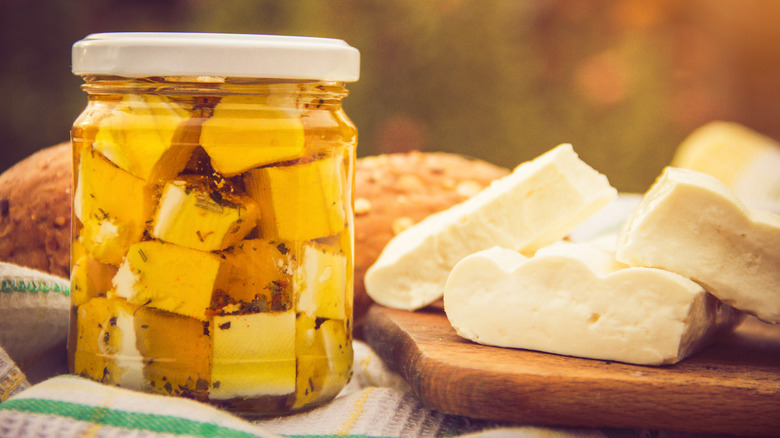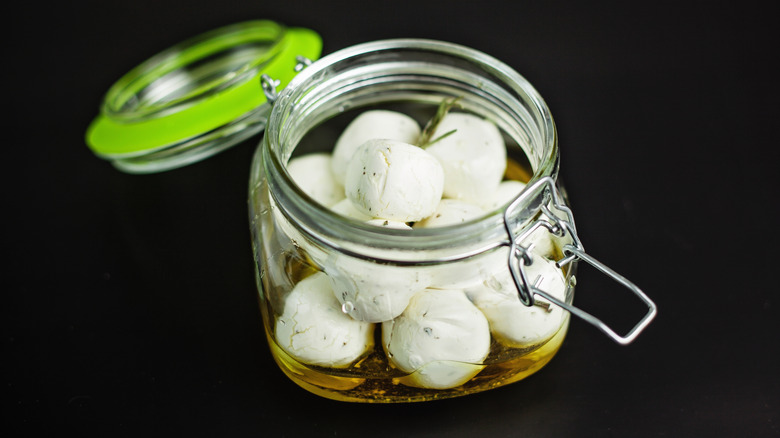It's About Time You Start Marinating Cheese — But Keep This In Mind
Marinate on this: Why are marinades so important in cooking? The benefit of meat marinades is that they help to both tenderize and flavor the meat, and in some cases, the acidic element can help keep it from spoiling. But what about cheese? Cheesemonger Matthew Rose, one of the partners behind Fairfield and Greenwich Cheese Company, spoke with The Takeout exclusively, sharing that marinating cheese is primarily about making it taste good.
There seems to be some evidence that with certain cheeses (goat cheese among them), an oil-based marinade can help to extend the life of the product. In fact, that is why oil marinades were originally used back in pre-refrigeration days. This doesn't apply to all cheese types, however. Rose shares, "Marinating at home with olive oil can be fun, but the oil will not stop a fresh cheese from [spoiling]. If you do choose to marinate a fresh mozzarella, it should only be kept a few days at most; it will have the same perishability if you marinate it or not."
This means your best bet is to eat any marinated cheese within its normal lifespan. As Rose reiterates, "If you are going to marinate a fresh cheese, the perishability of the cheese is key," which means that marinated fresh mozzarella might only be good for five days. He describes the longer-lasting feta, however, as "suitable for marinating for an extended period of time" since it can remain edible for up to three weeks.
The best ingredients for making marinated cheese
Oil is used as the base of many marinated cheese recipes, and in Matthew Rose's opinion, "Extra virgin olive oil is going to be the best substrate for marinating cheeses; it has the most refined flavor." If you don't care for its slightly bitter taste, however, you can always opt for the milder, less assertive virgin or pure varieties, or use a different product such as avocado oil. Flavored oils are also an option. As Rose notes, "Infused olive oils with basil, or citrus, or garlic...can be super flavorful," adding: "Fresh sliced mozzarella with tomatoes and basil-infused olive oil...can be mind-blowingly delicious." If you'd like a little tang in your marinade, you can also add vinegar or even leftover pickle juice.
You can marinate any type of cheese you like, although Rose notes that fresh mozzarella, burrata, and ricotta may only be marinated for a few days. For a more stable cheese that can be marinated for longer, he suggests feta along with a few other options: "Manchego and EVOO is a delicious pairing...[and] a younger Gouda could be tasty as well with a nice olive oil."
In addition to cheese and liquid, you might also want to flavor the marinade with a few extra ingredients. "I love to add dried herbs or red pepper flakes or even sundried tomatoes," says Rose, although some additions do come with a caveat. If you're using fresh herbs or garlic, you'll need to remove them from the marinade after four days or consume the cheese within that time frame. Otherwise, these ingredients might begin to breed harmful bacteria such as botulism toxins.

